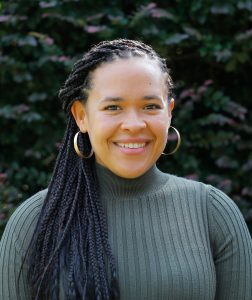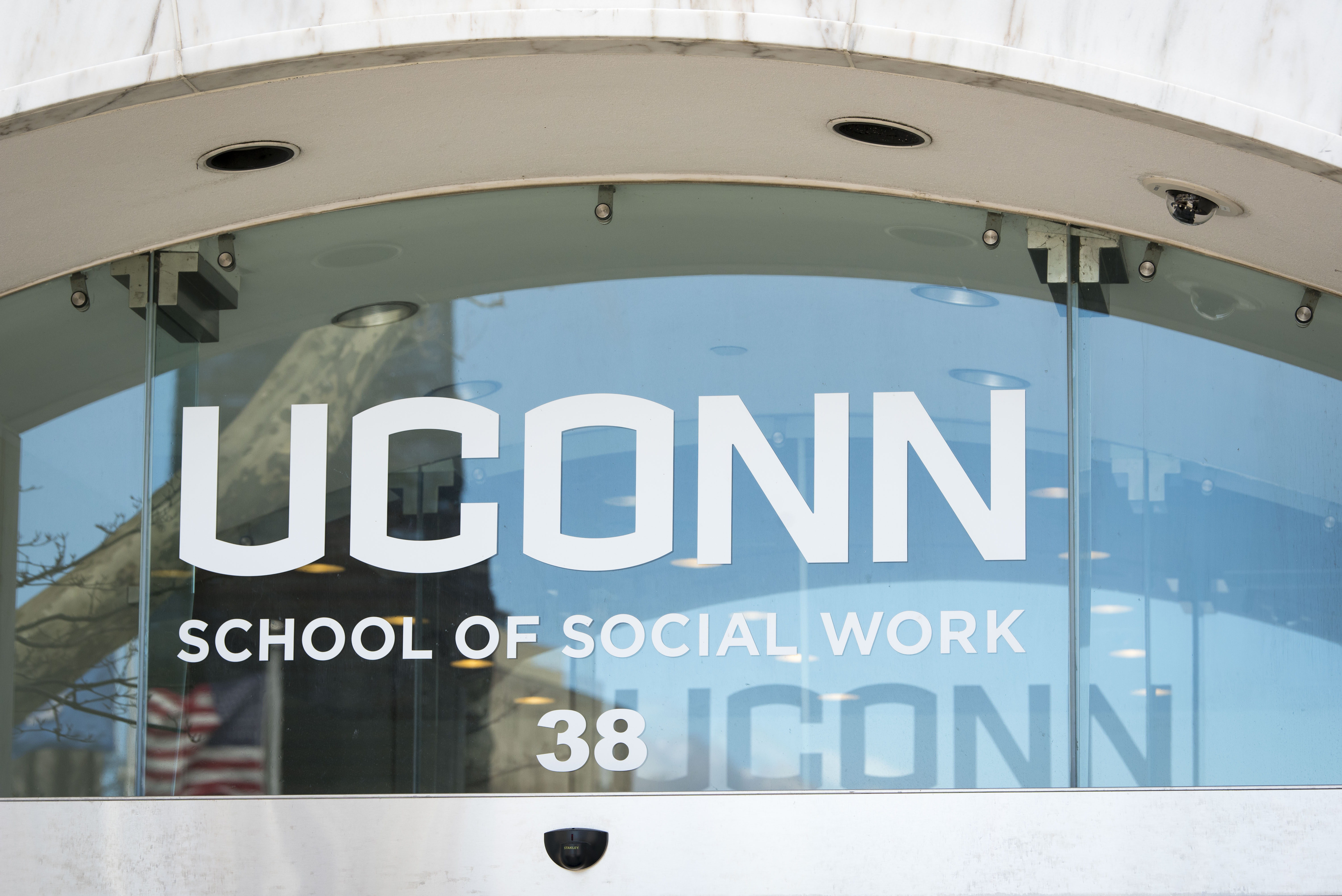Alexandria Forté’s professional story starts with her in a kitchen – blending, baking, and browning dishes both savory and sweet for customers to enjoy.
In a job as a chef after finishing her undergraduate degree, she says she once thought that’s how she could be of service to others – stirring, slicing, sauteing for a community that wanted to be fed.
“But it’s backbreaking work, very physically demanding, and I started to miss academic work,” she says. “Around this time, I also was doing some volunteer work and when I realized the person running that program had an MSW, I knew that was the direction I wanted to go.”

Fast-forward through time at the University of Denver for her Master of Social Work and University of North Carolina at Chapel Hill for her Ph.D., Forté is one of the newest faculty members at the UConn School of Social Work.
And she hasn’t left food behind.
While getting her MSW, she worked with youth who were living in subsidized housing and developed a curriculum around healthy eating. Then, she pivoted to work in a hospital, where she noted that many of her clients were impacted by food insecurity.
“That’s when I started to ask why more social workers weren’t talking about this. Why isn’t social work at the table when it comes to food insecurity? Often, public health leads this conversation or other disciplines, but I wanted to be at the table on behalf of social work,” she says.
Forté, an assistant professor, says she’s always thinking about how she can work food into her classroom discussions.
“As an example, I’m teaching theory, and this week we’re going to be learning about feminism and queer theory,” she explains. “Food preparation is often seen as women’s work and with feminism, there was a desire for some women to leave the kitchen and pursue work outside of the home. In other sections, we’ve discussed how disparities in access to food can be due to systemic inequities. Using food access and how different identities engage with food makes these heady theories feel more tangible.”
When it comes to her research, Forté is focused on the impact food insecurity has on one’s mental health, specifically for young people in middle and high school, and how that impact can be measured accurately.
Children as young as 9 understand what food insecurity is and know whether they’re affected, she says, yet there hasn’t been much research exploring their experience. Most often, the head of the household is the one surveyed, even though teenagers oftentimes bear the burden too.
“Children experience it differently,” she says. “They’re also trying to figure out how to bring food into the home, but from a different perspective, ‘Can I bring this pizza home from a club meeting, so my family can eat tonight?’ They may not be buying groceries, but they’re trying to get food into the home.”
Many teenagers are charged with the care of siblings, especially if adults are working multiple jobs, she notes, and even though they’re not recognized as the head of the household, at times they serve in that capacity, having to figure out what to make for dinner, maybe even going hungry themselves when food is scarce.
“We need to capture what they’re going through because it is different from adults,” Forté says. “Knowing what adults experience is important, but this 9- to about 17-year-old age range, when they’re in school, that’s what I’m interested in. If we can understand their experiences – what does it feel like to know you don’t have food in the home – we can be better at supporting their health and well-being.”
And that may mean having a discussion about policy, another area in which she’s interested.
UConn’s Husky Harvest initiative, which established food pantries on all campuses, and its Rudd Center for Food Policy and Health are two reasons Forté says she sought to come to Connecticut for work.
“Those were a huge draw for me,” she says. “They demonstrate that this university sees how important it is for people to get access to food and, in policy, that’s where we’re going to see a lot of change. I believe that access to food is a human right.”
Forté says that when she was in practice, she spent a fair amount of time connecting people with resources, sourcing the locations of pantries, food banks, and community refrigerators. Sometimes she’d go along with clients to teach them what they could do with a can of tomatoes, bag of beans, and box of rice.
She’d teach them to salvage the seasoning packet from a package of ramen noodles to spice up the blandness of another dish.
“The experience of poverty is not fun, but if you can take even just a moment and create a little bit of joy in cooking, it can become time when you experience a little pleasure in life,” she says.



